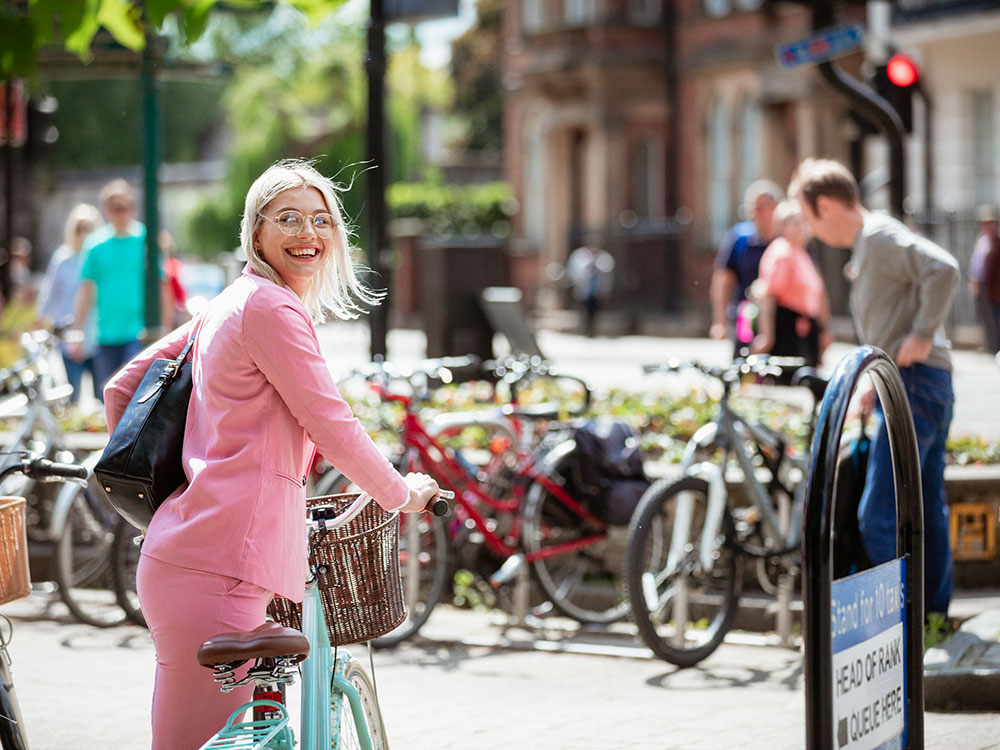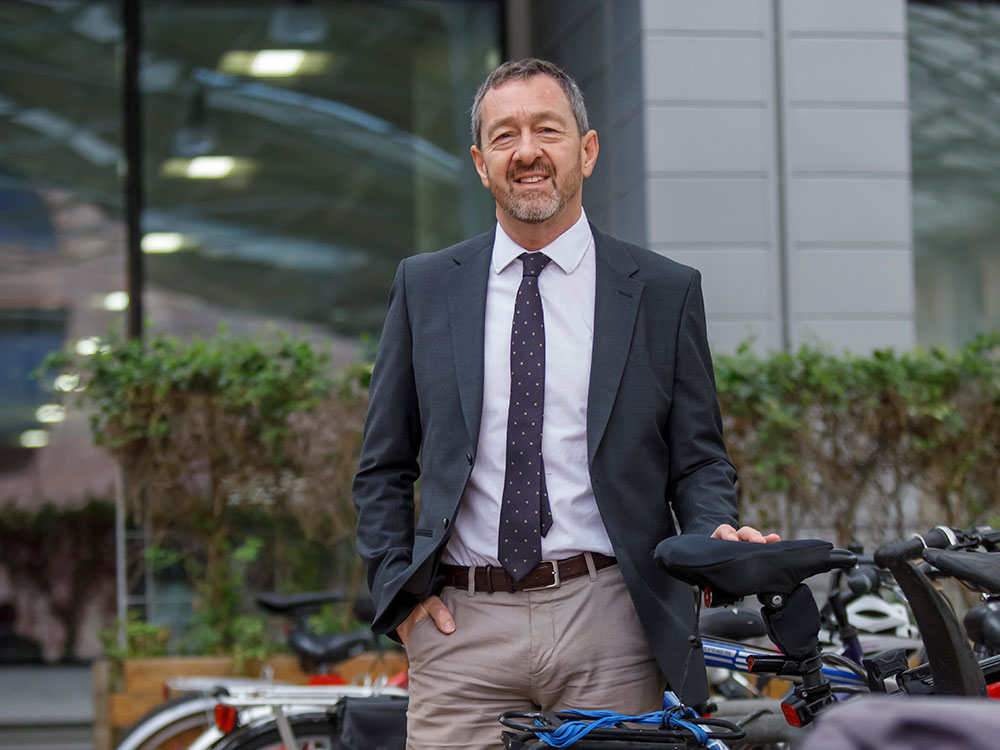Former Olympic champion Chris Boardman officially opened the government body tasked with boosting cycling and walking in England at its new national headquarters in York’s West Offices yesterday (Wednesday).
Active Travel England (ATE) is tasked with ensuring 50 per cent of all short journeys in towns and cities are walked or cycled by 2030.
Active travel commissioner Boardman, who won a gold medal at the 1992 Games and raced in the Tour de France, said: “That’s only going to happen if people feel they’ve got a viable choice.
“Providing that is our job – to make sure that people have got safe space and all the things they need to make getting to schools, shops and workplaces under your own steam a pleasant and enjoyable thing to do.
“It will also help people save money, save the NHS by improving the nation’s health and decarbonise the planet.”
ATE will be responsible for driving up the standards of cycling and walking infrastructure and managing the national active travel budget, awarding funding for projects of a high standard and inspecting finished schemes.
It will employ around 100 staff in York, with 50 already in place.
While London and Manchester have made big steps forward on active travel, progress elsewhere has been patchy.
Boardman said Yorkshire was “still finding where it’s going to start”, adding that Sheffield, under Mayor Oliver Coppard and his active travel commissioner, Olympian Dame Sarah Storey, had “made a good start”.
Political will is needed

In York, ATE recently rated the city’s progress on cycling and walking as one out of four – the second lowest level. A host of active travel projects were shelved in the city at the end of last year after council chiefs said they didn’t have the cash.
Boardman, formerly Greater Manchester’s cycling and walking commissioner, said political will was needed at any council that wanted to attract funding.
“It’s a choice,” he said. “If you can cope with the way people are travelling around your region now and you haven’t got the will to change it, crack on – but we won’t fund anything if it’s done badly.
“It must be uninterrupted safe space, that includes the junctions, all the way from where people live to where they want to go.
“Money is not the issue.”
While cycling schemes can sometimes attract negative media coverage and some local opposition, Boardman said critics were looking at the issue the wrong way round.
“It’s not about cycling and walking,” he said. “It’s about transport independence for kids. It’s about being able to go from a two car to a one car family if you want to and save thousands. Cycling and walking are just a means to an end.
“For local councils, it’s not always an easy job. So we have to make sure that they’ve got the political will to do the hard bit to then get all the rewards on the other side.
“This stuff is popular. It gets about 70 per cent support across the board routinely, but it’s noisy at the start – or it can be.”
The Olympian also pointed out that the younger generations are much less likely to own a car and are often missed out in the debate about active travel.
Boardman said the question about the cost of doing nothing on active travel – more pollution, inactivity and road deaths – was not being answered.
He added: “Can we afford the status quo?”
[tptn_list limit=3 daily=1 hour_range=1]
